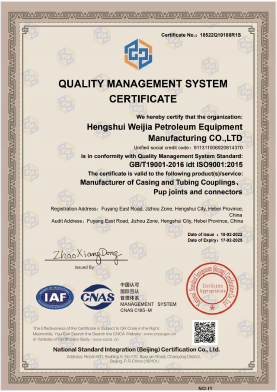- Afrikaans
- Albanian
- Amharic
- Arabic
- Armenian
- Azerbaijani
- Basque
- Belarusian
- Bengali
- Bosnian
- Bulgarian
- Catalan
- Cebuano
- Corsican
- Croatian
- Czech
- Danish
- Dutch
- English
- Esperanto
- Estonian
- Finnish
- French
- Frisian
- Galician
- Georgian
- German
- Greek
- Gujarati
- Haitian Creole
- hausa
- hawaiian
- Hebrew
- Hindi
- Miao
- Hungarian
- Icelandic
- igbo
- Indonesian
- irish
- Italian
- Japanese
- Javanese
- Kannada
- kazakh
- Khmer
- Rwandese
- Korean
- Kurdish
- Kyrgyz
- Lao
- Latin
- Latvian
- Lithuanian
- Luxembourgish
- Macedonian
- Malgashi
- Malay
- Malayalam
- Maltese
- Maori
- Marathi
- Mongolian
- Myanmar
- Nepali
- Norwegian
- Norwegian
- Occitan
- Pashto
- Persian
- Polish
- Portuguese
- Punjabi
- Romanian
- Russian
- Samoan
- Scottish Gaelic
- Serbian
- Sesotho
- Shona
- Sindhi
- Sinhala
- Slovak
- Slovenian
- Somali
- Spanish
- Sundanese
- Swahili
- Swedish
- Tagalog
- Tajik
- Tamil
- Tatar
- Telugu
- Thai
- Turkish
- Turkmen
- Ukrainian
- Urdu
- Uighur
- Uzbek
- Vietnamese
- Welsh
- Bantu
- Yiddish
- Yoruba
- Zulu
Understanding the Purpose and Functionality of a Bull Plug in Various Applications
Understanding Bull Plugs Their Purpose and Usage
A bull plug, often referred to in the context of various industries, is a specialized type of equipment designed for specific functions, primarily in fluid management systems. Understanding what a bull plug is and its applications can help professionals and hobbyists alike ensure efficient operation in their respective fields.
What is a Bull Plug?
A bull plug is a type of plug used to seal off any openings or ports in a system, specifically in high-pressure situations. These plugs are usually constructed from durable materials, such as metal or high-grade plastics, to withstand extreme conditions. The design of a bull plug often includes a tapered end to facilitate a tight seal, preventing any leaks from occurring. This is crucial in applications where maintaining pressure or ensuring containment is vital.
Primary Uses of Bull Plugs
1. Fluid Management Systems In industries like oil and gas, bull plugs are often used in pipelines and tanks to seal off unused ports or connections. This prevents the escape of fluids, which could lead to safety hazards or environmental contamination.
2. Equipment Maintenance During maintenance or repair work on valves and other components, bull plugs can temporarily seal off lines to isolate sections of a system. This allows technicians to safely perform work without risking leaks.
3. Testing and Calibration Bull plugs are essential when conducting pressure tests on systems. By sealing off certain areas, technicians can accurately test the integrity of a system without the risk of fluid loss or pressure drop skewing results.
what is a bull plug used for

Advantages of Using Bull Plugs
One of the main benefits of using bull plugs is their effectiveness in creating a leak-proof seal. This is crucial in preventing costly spills and maintaining system pressure. Additionally, bull plugs are designed to be reusable, making them a cost-effective solution for many industries.
Furthermore, the materials used in bull plugs are often resistant to corrosion and wear, which enhances their longevity in harsh environments. This durability means less frequent replacements and lower maintenance costs over time.
Installation and Considerations
When installing a bull plug, it is important to ensure that the plug is the correct size and type for the application. Improperly sized plugs can lead to leaks or failure to seal effectively. Moreover, the condition of the threads or mating surfaces should be assessed prior to installation, as damaged threads can compromise the seal.
For safety reasons, it’s crucial to follow industry standards and guidelines when using bull plugs, particularly in high-pressure environments. Proper training and awareness of the product’s capabilities and limitations can significantly reduce the risk of accidents.
Conclusion
In summary, bull plugs are essential components in various industries where fluid management and pressure containment are critical. Their robust design and effective sealing capabilities make them a reliable choice for anyone needing to manage fluid systems safely and efficiently. As industries continue to evolve, understanding tools like bull plugs will remain vital for professionals aiming for operational excellence and safety. Whether in the field of oil and gas, manufacturing, or any other sector, the importance of a simple yet effective tool like a bull plug cannot be overstated.
-
Tubing Pup Joints: Essential Components for Oil and Gas OperationsNewsJul.10,2025
-
Pup Joints: Essential Components for Reliable Drilling OperationsNewsJul.10,2025
-
Pipe Couplings: Connecting Your World EfficientlyNewsJul.10,2025
-
Mastering Oilfield Operations with Quality Tubing and CasingNewsJul.10,2025
-
High-Quality Casing Couplings for Every NeedNewsJul.10,2025
-
Boost Your Drilling Efficiency with Premium Crossover Tools & Seating NipplesNewsJul.10,2025







